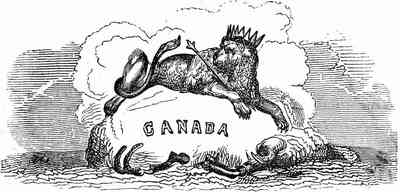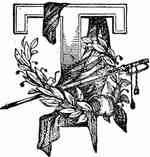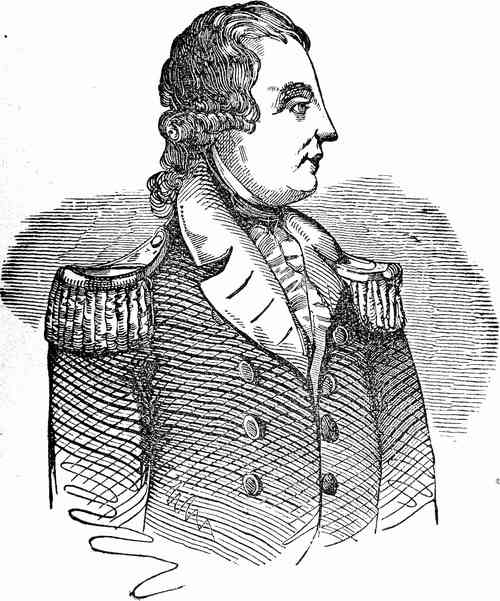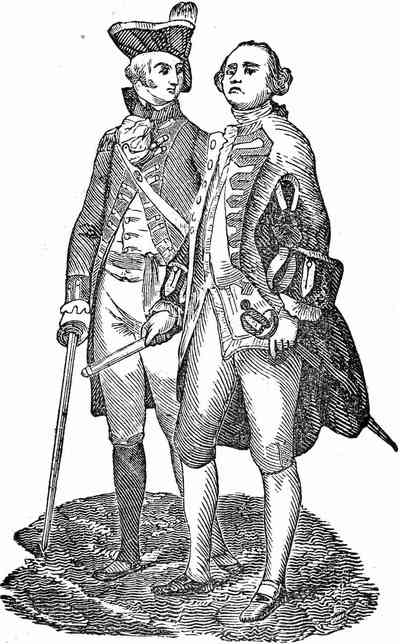Thrilling Incidents In American History
• Preface
Revolutionary War
• Opening Of The Revolution
• The Boston Massacre
• Affair of the Sloop Liberty
• Affair of the Gaspee
• The Tea Riot
• The Boston Port Bill
• The First Continental Congress-Consequent Parliamentary proceedings
• Organization of the Minute-Men
• Patrick Henry-Second Provincial Congress-First Military Enterprise
• Battles of Lexington and Concord
• Battle of Bunker's Hill
• Capture of Ticonderoga
• Second Continental Congress-Washington's Appointment
• Siege of Boston
• Incidents at the Evacuation of Boston
• Burning of Falmouth
• Arnold's Expedition to Quebec
• Siege of Quebec, and Death of Montgomery
• Scenes at Quebec during the Siege
• Expedition against Charleston
• The Declaration of Independence
• The Battle of Long Island
• Washington's Retreat through New Jersey-Capture of General Lee
• Battle of Trenton
• Battle of Princeton
• Capture of General Prescott
• Battle of Brandywine
• Battle of Germantown
• Battle of Red-Bank
• Attack on Fort Mifflin-Retirement of the Army to Valley Forge
• Battle of Bennington
• Murder of Miss M'Crea
• Battle of Stillwater
• Battle of Bemis' Heights, and Retreat of Burgoyne
• Capture of Forts Clinton and Montgomery
• Surrender of Burgoyne
• The Treaty with France
• Attack on Savannah, and Death of Pulaski
• Storming of Stony Point
• General Sullivan's Campaign against the Mohawks
• Tarleton's Quarters
• Battle of Camden, and Death of De Kalb
• Arnold's Treason
• The Loss of the Randolph
• The British Prison-Ships
• Capture of the Serapis
• Putnam's Feat at Horseneck
• Battle of Eutaw Springs
• Wayne's Charge at Green Spring
• Capture of the General Monk
• The Mutinies
• Battle of the Cowpens
• Capture of New London
• Massacre of Wyoming
• Surrender of Cornwallis
War With France
• Capture of L'Insurgente
• The Constellation and Vengeance
War With Tripoli
• Burning of the Philadelphia
• Bombardment of Tripoli
• Loss of the Intrepid
• Expedition of General Eaton
Second War With England
• Battle of Tippecanoe
• Capture of the Guerriere
• Tragical Affair of an Indian Chief
• Battle and Massacre at the River Raisin
• Captain Holmes's Expedition
• Capture of the Caledonia and Detroit
• The Wasp and Frolic
• Gallant Conduct of Lieutenant Allen at the Capture of the Macedonian
• Capture and Destruction of the Java
• Siege of Fort Meigs
• Capture of York, and Death of General Pike
• Defence of Sackett's Harbour
• Defence of Fort Stephenson
• Battle of Lake Erie
• Battle of the Thames
• Gallant Action of Commodore Chauncey under the guns of Kingston Citadel
• The Sacking of Hampton
• Capture of the Peacock
• Massacre at Fort Mimms
• Surrender of Weatherford
• Battle of Niagara
• BattIe of New Orleans
War With Mexico
• Battle of Palo Alto
• Battle of Resaca de la Palma
• Capture of Monterey
• Battle in the Streets of Monterey
• Thrilling Scenes in the Battle of Buena Vista
• Bombardment of Vera Cruz
• Battle of Cerro Gordo
• Battles of Contreras and Churubusco
• Storming of Chapultepec


SIEGE OF QUEBEC AND DEATH OF GENERAL MONTGOMERY.
 HE Americans, finding all their
proposals of alliance rejected,
determined to view Canada as
a hostile country. They observed that the British, almost entirely occupied in
the attempt to put down trhe insurrection, had left this country very slightly
defended. In September, 1775, two expeditions were fitted out, which were
distinguished by tragical events, as well as by the brilliant and romantic
valour of their chiefs. While the main body, under Montgomery, marched by Lake
Champlain upon Montreal, Arnold, with eleven hundred men, sailed up the
Kennebec, and proceeded through the vast forest that stretches between it and
the St. Lawrence, hoping to
HE Americans, finding all their
proposals of alliance rejected,
determined to view Canada as
a hostile country. They observed that the British, almost entirely occupied in
the attempt to put down trhe insurrection, had left this country very slightly
defended. In September, 1775, two expeditions were fitted out, which were
distinguished by tragical events, as well as by the brilliant and romantic
valour of their chiefs. While the main body, under Montgomery, marched by Lake
Champlain upon Montreal, Arnold, with eleven hundred men, sailed up the
Kennebec, and proceeded through the vast forest that stretches between it and
the St. Lawrence, hoping to

General Montgomery.
surprise Quebec. His march through the wilderness we have already described. The sufferings of the party were extreme, being obliged to eat dog's flesh and the leather of their cartouch-boxes. Yet they arrived, on the 9th of November, at Point Levi, without any alarm having reached the capital; but all the shipping had unfortunately been removed from that side. Arnold was thus unable to cross, and in twenty-four hours the inhabitants were apprised of the danger. On the 14th that active officer contrived to pass the river and occupy the heights of Abraham, though his force was too small for active movements, till joined by Montgomery. This commander sent forward a reconnoitring party under Colonel Ethan Allen, who made a brave but rash attempt on Montreal, in which he was taken, with his party, and afterwards sent in irons to England.
Montgomery, however, having reduced the posts of St. John and Chambly, and made prisoners of their garrisons, which included a large proportion of the regular force in Canada, that city was quite unable to resist; and General Carleton, the governor, with difficulty escaped in a boat with muffled paddles. The American 1eader then advanced upon Quebec, and took the command of the united force. Carleton had under arms only eighteen hundred men, of whom not more than seventy were regulars; two hundred and thirty of Fraser's Highlanders, who had settled in the country, were re-embodied under Colonel M'Lean; the rest were British and Canadian militia, seamen, and others. The summons to surrender, however, was at once rejected; and Montgomery, after pushing the siege during the month of December without any prospect of success, determined to carry the place by a night-assault. On the 31st, two storming parties were formed,-one under himself and the other under Arnold. They were to advance from opposite sides, and meet at the foot of Mountain Street, then force Prescott Gate, and reach the Upper Town. The first battery encountered by Montgomery was defended chiefly by a party of Canadian militia, with nine British seamen to work the guns. Having received some previous notice, they were on the watch; and, about daybreak, saw amid the snow a body of troops in full march from Wolfe's Cove. Orders were given by the British commander to make no movement; and the Americans having halted at the distance of fifty yards, sent forward an officer to reconnoitre, who found everything perfectly still. On his return the assailants rushed forward in double quick time to the attack. When they were close to the spot, Captain Barnsfare, at the critical moment, gave the signal for a general discharge of guns and musketry. It told with unexpected and fatal effect; for, among many others, Montgomery himself the gallant chief, fell to rise no more. The troops, on witnessing this disaster, made a precipitate retreat.
Meantime Arnold, from the opposite side, pushed on his attack with desperate resolution. In assaulting the first barrier, he received a severe wound in the leg, which obliged him to quit the field. But his party, led on by Captain Morgan, carried the post, and pushed on to a second. Here, however, their efforts were vain; and General Carleton having sent a detachment upon their rear, they were surrounded, and finalIy, to the number of four hundred and twenty-six, obliged to surrender. Neither of the parties thus reached the main point of attack at Prescott Gate, where the governor was stationed, with the determination to maintain it to the last extremity.
The British were not yet aware of all the results of the contest. As soon as the retreat of the first party was ascertained, they went out and collected, from under the snow which had already covered them, thirteen bodies. The surmise soon arose that one of them was that of the commander; yet some hours elaased before an officer of Arnold's division identified him, with the deepest expressions of admiration and regret. Montgomery, a gentleman of good family in the north of Ireland, had served under Wolfe, but having afterwards formed a matrimonial connexion in America, he had adopted with enthusiasm the cause of the United States as that of liberty. His military character, joined to his private virtues, inspired general esteem, and has secured to him a place on the roll of noble and galIant chiefs who fell beneath the walls of Quebec.
Arnold succeeded to the command, and attempted still to maintain his ground; but the dispirited state of his men, still more than his actual loss, rendered him unable to keep up more than an imperfect blockade, at the distance of three miles. In April, 1776, his place was taken by General Wooster, who rought a reinforcement, and made some fresh attempts, but without success. Early In May, several vessels arrived from England with troops and supplies, on which the Americans raised the siege, and fell back upon Montreal. Thence they retired from post to post, till, on the 18th of June, they finally evacuated the province, on which they never made any further attempt.


Quebec